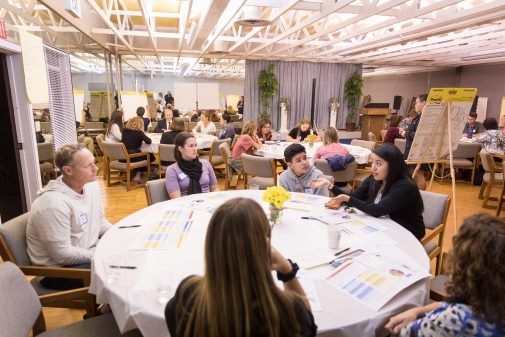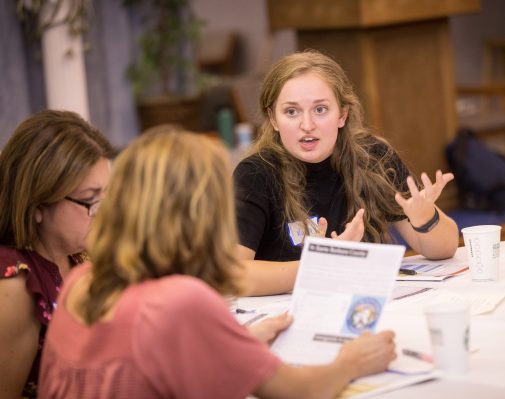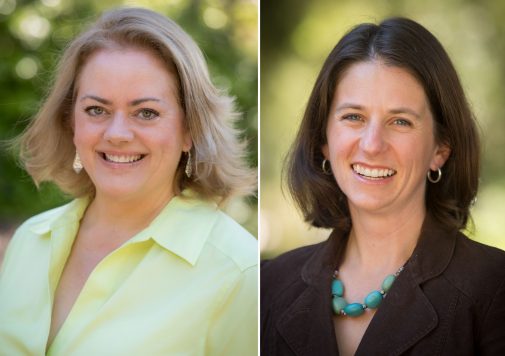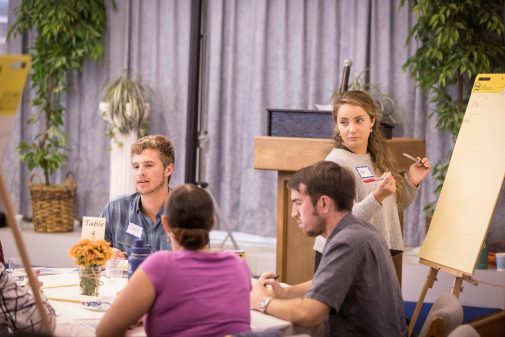Westmont Initiative Tackles the Opioid Epidemic
By
Westmont

The opioid epidemic sweeping the country affects virtually every American, directly or indirectly, often in deeply personal ways. The Westmont Initiative for Public Dialogue and Deliberation (WIPDD) hosts a community conversation on the topic Thursday, Oct. 24, from 7-9 p.m. at First Presbyterian Church, 21 E. Constance Ave. Community members may register to participate on a first-come, first-served basis by email at wipdd@westmont.edu. Registrants are asked to arrive at 6:45 p.m. Free parking is available onsite.
Deborah Dunn, professor of communication studies, and Rachel Winslow, director of the Westmont Center for Social Entrepreneurship and assistant professor of history, created and began directing WIPDD in 2018 to encourage dialogue on difficult issues in the local community.

On Oct. 24, the group will use a framework established by the National Issues Forums Institute to raise a number of difficult questions with no easy answers:
- Should we consider decriminalizing the use of drugs and focus on dealers and distributors, or does that invite more young people than ever to give dangerous drugs a try?
- Should we do more to strictly enforce current drug laws on dealers and users alike, or will that simply create a revolving door of largely nonviolent offenders through already overcrowded jails?
- Should we recognize that drug addiction is a public health problem and provide treatment centers for everyone who needs them, or does this do little to prevent people from becoming addicted in the first place?
- Should we do much more to regulate the health-care professions and pharmaceutical companies, which have played a central role in prescribing and distributing opioids, or will this approach cause serious suffering for many patients who depend on opioids to relieve chronic pain?

“The concerns that underlie this issue are not confined to party affiliation, nor are they captured by labels like ‘conservative’ or ‘liberal,’” Dunn says. “This is a kind of talking that starts where the problem starts — with your experience of it — real, genuine, human struggles. Ultimately, this conversation is less about seeing eye-to-eye and more about looking at the costs and consequences of possible solutions to daunting problems, and finding out what we, as a people, will or will not accept as a solution.”
“Perhaps you want to do more than send a check, sign a petition or vote,” Winslow says, “because you’ve realized that no one person, no single group has the answer to society’s toughest problems. Deliberation is a way to act together as a community to better understand and deal with problems more directly. Instead of asking our leaders, ‘What are you going to do for me?’ the question becomes, ‘Here are our investigations and recommendations. How will you apply these to the problem of opioid addiction in Santa Barbara?’”

Dunn and Winslow spent a year serving as research fellows with the Kettering Foundation in Dayton, Ohio, to prepare for the work of encouraging citizens to participate in our democracy and work together to solve “wicked problems.” Previous discussions have focused on county-wide issues concerning vulnerable children, immigration and trash.
“Our mission is to work with neighbors to speak and listen well together about challenges facing the Santa Barbara community to promote our common good and human flourishing,” Dunn says.
“By facilitating these discussions, we hope to equip students and neighbors with the tools they need to cultivate healthy conversation and careful listening,” says Jordan Baldridge, program coordinator.
Filed under
Academics, Alumni, Campus News, Faculty and Staff, Featured, Lectures, Press Releases, Student Stars